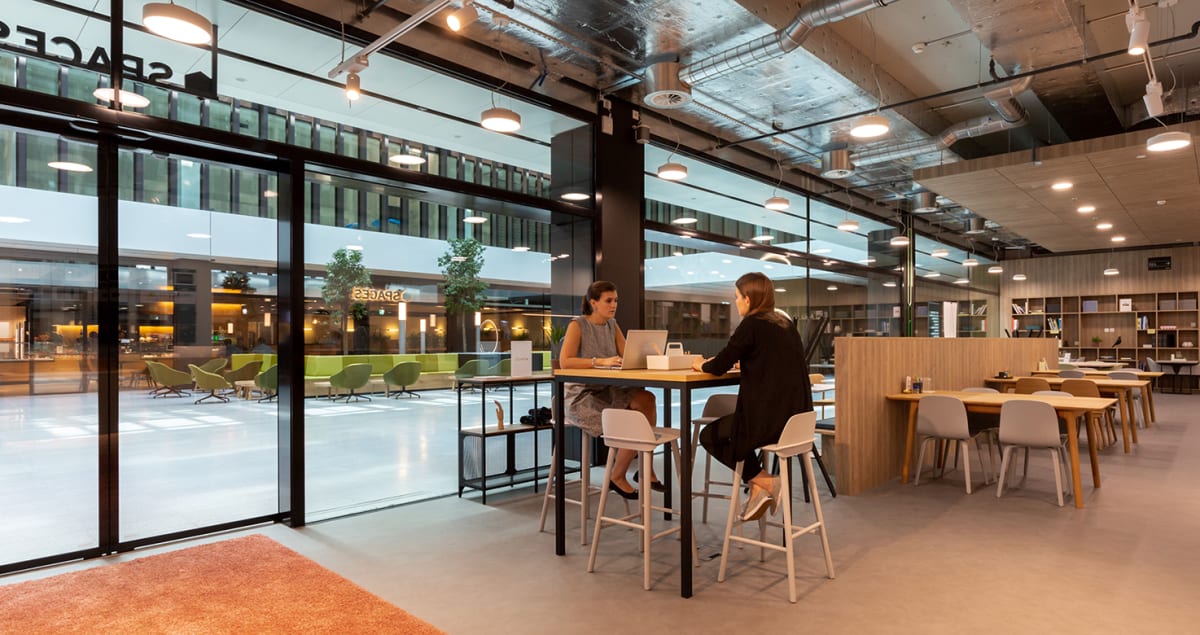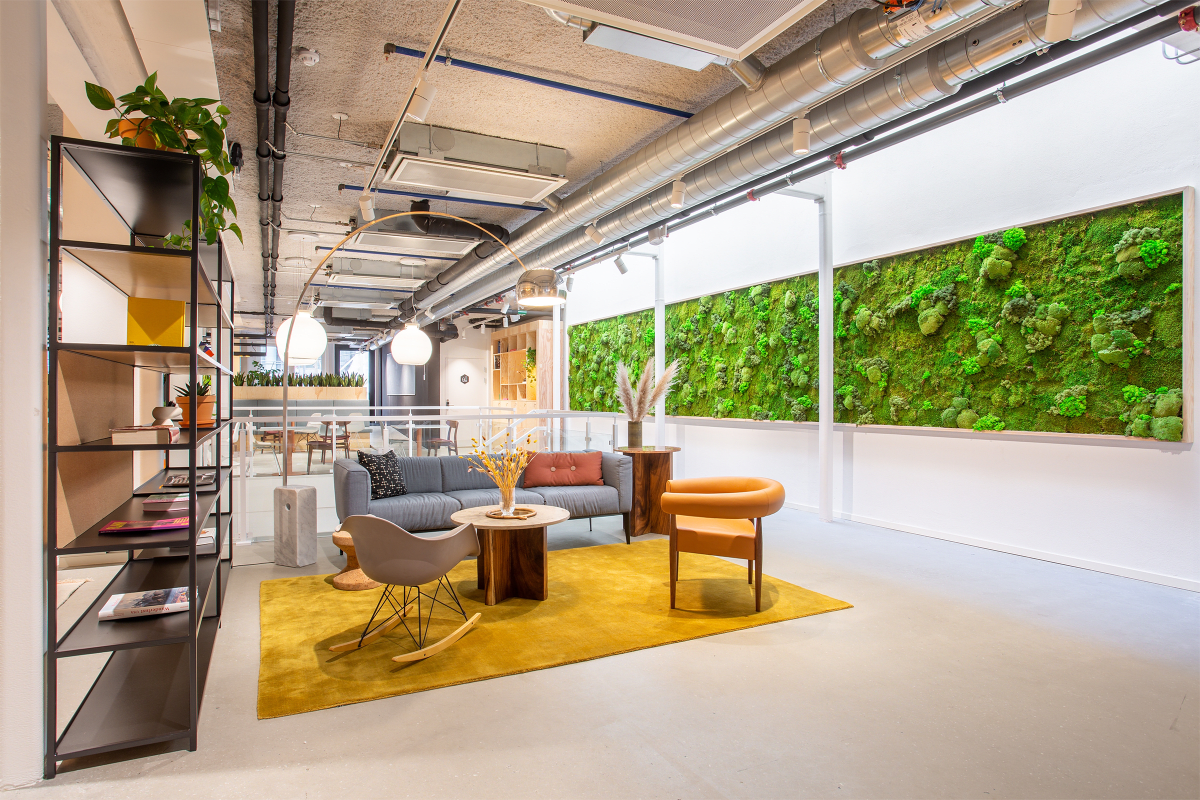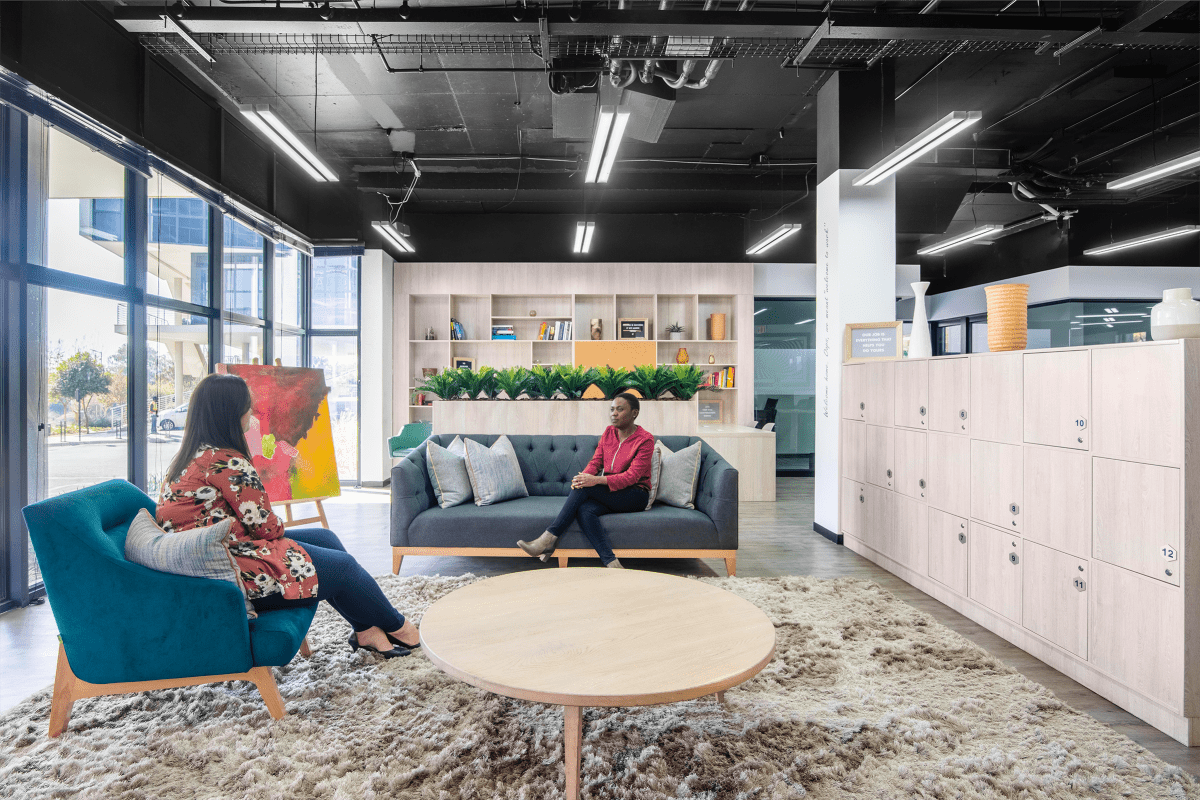The Centre for Cities think tank hopes for a five-day return to company HQs, but hybrid working is better for people, profits and the planet, says IWG CEO Mark Dixon.
Paul Swinney, Director of Policy and Research at Centre for Cities, was bold in his predictions for the future of work when he spoke with BBC Radio 5 Live on 8 June. “I expect we will see three or four days a week in the office as the UK recovers,” the think tank director said, referring to the gradual lifting of restrictions put in place to halt the spread of Covid-19. “Over the longer term, I’m quite hopeful that we will see people return five days a week.”
Swinney’s view is in stark contrast to those of many CEOs, CFOs and HR directors, for whom the pandemic has brought home the advantages of a hybrid or ‘hub-and-spoke’ way of working, according to IWG CEO and Founder Mark Dixon. Also appearing on 5 Live, he argued that while the 9-to-5 will be around for as long as work itself, “it’s got to happen in different places… [There’s been a] fundamental change in the geography of work… using technology to cut the commute.”
The hub-and-spoke model
The hub-and-spoke model reimagines the corporate HQ as a ‘hub’ to which employees will come for collaboration, but offers workers the flexibility to work closer to home at satellite offices (‘spokes’) on day-to-day tasks, reducing the need for long commutes and improving their quality of life.
The reality, according to research by countless studies, is that this is what people want. A recent IWG study showed that 77% of employees considered a place to work closer to home a must-have for their next job move. Meanwhile, a Stanford survey conducted in 2020 revealed that 55% of US workers want a mixture of home and office working. Microsoft’s report, The Next Great Disruption Is Hybrid Work insists that “flexible work is here to stay”, argues “leaders are out of touch with employees and need a wake-up call”, and states that 66% of business decision makers are considering redesigning physical spaces to better accommodate hybrid work environments.
Firms as diverse as Google, Facebook, Nationwide Building Society and BP have made clear that a five-day return to the office won’t be expected of staff, even after all restrictions related to the pandemic are lifted.
Elsewhere, the hub-and-spoke model is being enthusiastically embraced by major multinational corporations, as evidenced by a number of landmark IWG deals signed in recent months. Japanese telecommunications group NTT inked an agreement that provides its 300,000 employees with access to more than 3,300 IWG workspaces worldwide. This follows a major deal with financial services firm Standard Chartered, and a partnership with EY Norway that has seen it integrate its new Oslo HQ with a Spaces centre.
In the UK, demand for IWG workspaces in some M25 commuter hotspots surged during the pandemic. For example, in Uxbridge it has grown by 175%, in High Wycombe it’s risen by 52% and Hayes saw an increase of 24%. By contrast, demand for space in some parts of London dropped by 10-20%. This unprecedented demand for flexible office space in suburban locations underlines the sea change in working culture that’s been accelerated by Covid-19.
“Your business doesn’t stop if you’re not all sitting in the same office every day,” Dixon points out. “There is a new normal [and that’s] a local office, or an allowance to grab an office down the road.” Rather than a place where you go, he argues, “work becomes a thing that you do.”
Agility and sustainability
Adopting hybrid working isn’t only about attracting and retaining talent, however. Firms are also recognising the payback of greater agility. By eschewing the burden of traditionally long and expensive office leases, companies risk less financial exposure – and investing in flexible workspaces means they can rapidly scale their space up or down, depending on business needs.
Hub-and-spoke working also has advantages in terms of sustainability and health and safety. Reducing workers’ commutes can help to cut the carbon footprint of a business, and having fewer people packed into the same space every day allows for greater social distancing – something that’s likely to remain a concern for many employees even as the pandemic recedes.
The 15-Minute City
IWG CEO Mark Dixon connects the concept of the 15-Minute City with the world’s growing appetite for hybrid working and enhanced flexibility. Conceived by French academic Carlos Moreno, the idea is that work, shops, entertainment, education and healthcare are all easily reached within 15 minutes of where people live, either on foot or by bicycle.
While Swinney insists that “one of the benefits of being in the office is having interactions with other people, coming up with new ideas and sharing information”, Dixon isn’t convinced. The hub-and-spoke model still allows for spontaneity and face-to-face collaboration, but it also meets needs that the traditional 9-to-5 grind can’t address.
“The 15-Minute City is about people wanting to have more of their life more local,” Dixon explained in an interview with Bloomberg Technology. “Technology now allows that, and the true enemy for many is the daily grind of commuting. That’s what people are looking to avoid. [They’ve] appreciated… more time at home, or closer to home [during the pandemic]. It’s been very valued.”
Dixon’s point is borne out by statistics from map maker Ordnance Survey. During the UK’s first lockdown, it saw a 175% increase in sales of its Custom Made offering, which allows users to personalise a map with a photo and centre it on a given area. These maps often focused on areas around people’s homes, reflecting their fresh curiosity and enjoyment of their own neighbourhoods.
“Just when local cities and towns seemed to be dying,” says Dixon, “Covid-19 may have come along and saved them. The realisation of the 15-Minute Commute will be one of the most dramatic and long-lasting legacies of the pandemic. What were previously sleepy dormitory towns are set to become vibrant centres for work and community life.”
The appeal of flexible work arrangements is strong for both business leaders and employees alike, and Dixon believes there’s no going back. “The future of work is with us today,” he says. “Embracing hybrid ways of working is not just convenient, but sensible, too.”
With thousands of smart flexible workspaces all around the world, IWG can offer the services your company needs to navigate the new normal.






